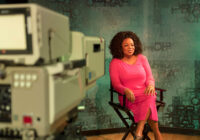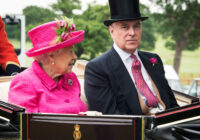As last year’s British Social Attitudes survey indicates, 66% approve of same-sex couples, meaning about a third do not. Our newest research suggests that, with 95% of fans saying they favor openly gay players, football crowds are more welcoming of gay people than the rest of the UK population. It may sound a counterintuitive argument, but it is based on the results of an online research project comprising the detailed accounts of 2,665 fans, the vast majority of whom are embarrassed that football is continually characterized as a homophobic environment that prohibits gay players from revealing their sexual identity — at least until their playing career is over.
For example, Thomas Beattie, an English ex-professional footballer who retired in 2015, recently declared, “I wouldn’t have come out if I was still playing now.” He was reflecting on football culture but without understanding how he and other gay players who disclose their sexuality only in retirement are contributing toward the very problem they seek to resolve.
Is Transphobia Becoming the Bitterest Bigotry in Modern Society?
Football and some other sports like basketball are oddly out of sync with other areas of society. When it comes to American football, for instance, just last week, 29-year-old Ryan Russell came out as bisexual, hoping to change the fact that no openly gay or bisexual players ever took part in a regular season game in the National Football League’s 101-year existence.
In politics, showbusiness and other spheres of public life, being gay has not been nearly as ruinous as it might have been 30 years ago, when the late Justin Fashanu came out after a national newspaper was about to break a story about him. Fashanu remains the only professional footballer from the major leagues to have publicly pronounced that he was gay during his active playing days. Yet football’s reputation as being rabidly homophobic and riven with bigotry is ill-founded.
Be Honest
A decade ago, we pursued research to investigate the extent of homophobia in football. The research was promoted on UK-based fans’ online forums, but, as with other digital projects, the project migrated, and several responses came from participants in countries where there are prohibitions on gay relationships. While it was widely assumed the absence of openly gay footballers was due to the fear of open hostility from crowds, no one had actually tested this.
Surprisingly, at the time, 93% of respondents decried homophobia and expressed a wish that gay players would be honest. Last year, we revisited the subject, again using an online research platform, this time asking a new sample to discuss changes over the previous decade. In 2010, it was generally expected that a gay player would make his sexuality public, probably within the next two or three years. This still hasn’t happened. Gay players like Thomas Hitzlsperger, a former midfield player for Aston Villa and the German national team, have waited until they reach the comfort of retirement before making their sexuality known.
So why is there such a mismatch between what players, the media and practically everyone else thinks about football fans, and reality? Football fans may be narrow-minded, partisan, in some parts of the country even sectarian, in every part jingoistic and perhaps — we will return to this later in the article — racist. But they are not homophobic, at least not in the sense of having or expressing a dislike of people who are homosexual. As far as they are concerned, there is only one salient feature of a footballer’s make-up: playing ability. If a footballer plays well, his sexuality is irrelevant. This was the case 10 years ago and it remains true today.
While the comparisons with rugby are not exact, they are serviceable. Gareth Thomas, the former Welsh captain, came out in 2009, aged 35, becoming one of the first professional athletes to do so. He was married to a woman at the time and divorced in 2010. It was thought the macho world of rugby would be unforgiving and that Thomas would endure hell on earth for the remainder of his career.
But nothing happened. Rugby fans were more grown-up than anyone suspected, and Thomas, far from being condemned as a symbol of moral decay, was lauded as a hero. Why would anyone suppose association football would be much different? There is an answer, and everyone is involved, especially gay players themselves.
If you like playing and enjoy the plentiful fruits of your labor — the average Premier League salary is estimated at £60,000 ($85,000) per week — then there is an understandable reluctance to disturb a satisfactory state of affairs, especially if you have an agent who captures well-paying endorsement deals for you. You are in control of what is, in many respects, a volatile career. Who knows what might happen if you decide to reveal that you have lived a fraudulent life thus far, disguising your sexual proclivities and putting on a cosmetic show of being heterosexual?
Now, the agent: You make your money as a commission, taking, say, 10% of everything your client earns. Mino Raiola, one of the world’s top agents, earned $84.7 million last year, according to Forbes. If one of your players wishes to come out, do you really want to risk a possible change in his marketability? It’s perfectly possible that he could become a gay icon, like so many rock and movie stars. But he may not. So, your advice is probably going to be: leave it until you retire.
Football club owners are, by definition, prosperous people; none are known to be gay. All of them are known to be conservative in the sense that they favor free enterprise and private ownership and, probably, the traditional values that have stood them in good stead. You may be an exception and think progressively enough to encourage your club’s gay players to open up, though you will probably warn them that hell hath no fury like a fan whose standards have been forged on the football terrace.
Media Mistrust
Football fans themselves know all this; they realize they are fingered as the culprits and are alert enough to know why. Over 40% have heard chants, shouts or just odd remarks about gay people and they know that in today’s woke milieu, they count as homophobic. They also realize something is lost — or gained — in translation. Football has a lively jocular tradition: Often, the banter heard at football games is regarded as a variant of some more sinister custom. But usually, these are fans’ attempts to cause rival players to lose concentration. Players with unusual surnames, thinning hair, unbeauteous faces or practically anything that distinguishes them can expect to be barracked mercilessly. An openly gay player would be too, but there would be no malevolence intended.
Football fans are not choirboys and choirgirls; their prejudices are rarely latent. In recent years, football racism has been made abundantly clear by the media. Racism has been identified as a major problem and publicized extensively. No one actually knows the extent of this form of racism because it is largely confined to social media. One person can generate a zillion memes and conjure the impression of a behemoth where there is, in fact, a sprite.
This helps explain why football fans are so mistrustful of the media. As our research shows, 48% believe gay players are intimidated by the prospect of a media reaction should they come out. All the evidence of recent years suggests the media are nowhere near as hysterical about homosexuality as they were when Fashanu came out and are, in fact, supportive.
It is a surprising, though not inconsistent, finding. Fans have been depicted by the media in caricatured terms, and few have challenged the popular stereotype of the rabid homophobe, ready to persecute the first player with the audacity to announce his gay credentials. Even in 2010, when reports of the original research circulated in the media, there was little inclination to rehabilitate the popular conception. It seems the stereotype is stuck in the media’s esophagus for a decade. Time for the Heimlich maneuver.
Ask yourself this question: If football fans are genuinely homophobic, why do they come over all sweet-natured when they watch women’s football? There are several out gay players, and the game itself has become something of a symbol for LGBTQ+ rights. Admittedly, the history of the distaff game is very different to its male counterpart, but that does nothing to explain the presumed difference. That’s because there really is no difference — at least in the West, or at least for British fans. Football fans are not too good to be true, but they are not nearly so bad as everyone else, including the players they cheer, suspect.
*[Correction: An earlier version of this article misattributed the finding that 48% believe gay players are intimidated by the prospect of a media reaction to the British Attitudes Survey.]
*[Ellis Cashmore, Jamie Cleland and Kevin Dixon are the authors of “Screen Society.”]
The views expressed in this article are the author’s own and do not necessarily reflect Fair Observer’s editorial policy.
Support Fair Observer
We rely on your support for our independence, diversity and quality.
For more than 10 years, Fair Observer has been free, fair and independent. No billionaire owns us, no advertisers control us. We are a reader-supported nonprofit. Unlike many other publications, we keep our content free for readers regardless of where they live or whether they can afford to pay. We have no paywalls and no ads.
In the post-truth era of fake news, echo chambers and filter bubbles, we publish a plurality of perspectives from around the world. Anyone can publish with us, but everyone goes through a rigorous editorial process. So, you get fact-checked, well-reasoned content instead of noise.
We publish 2,500+ voices from 90+ countries. We also conduct education and training programs
on subjects ranging from digital media and journalism to writing and critical thinking. This
doesn’t come cheap. Servers, editors, trainers and web developers cost
money.
Please consider supporting us on a regular basis as a recurring donor or a
sustaining member.
Will you support FO’s journalism?
We rely on your support for our independence, diversity and quality.






